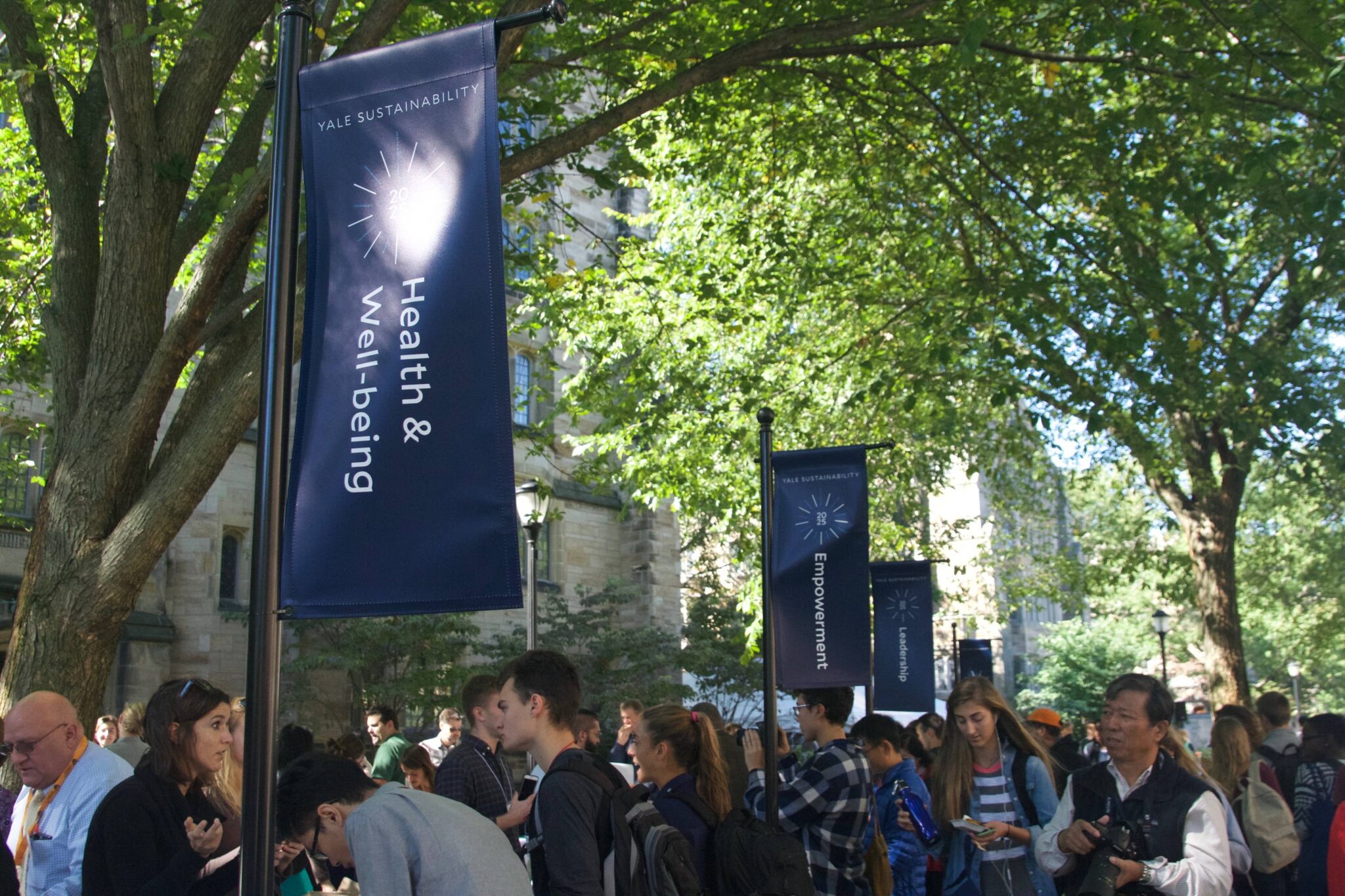
Trey Moore, a New Haven native and musician, was elated when he had the chance to attend Solange Knowles’ keynote event at the Yale Law School two weeks ago. But his ticket to the roundtable discussion did not come easily, leading him to reflect on Elm City residents’ access to public events at Yale.
Scheduled to speak in honor of Prince’s cinematic concerts and his sociopolitical activism at the Jan. 26 event, Knowles generated high levels of interest among Yale students and New Haven residents. Due to this high demand, the event released tickets to cap attendance at 450 people, the capacity of the Levinson Auditorium. According to Moore, he found out about Knowles’ appearance in a music magazine which advertised the event as free of charge. But when he wished to register for the talk, Moore said he was put on the waiting list, making him uncertain about whether he would get in. To air his frustration about the lack of communication between the campus and the wider Elm City community, Moore an open letter addressing his concerns.
To Moore, not being notified about public events in time only indicates a larger problem — a “wall of separation” between Yale’s campus and the rest of New Haven, even though Yale is situated at the heart of downtown.
“The natives are very conscious of the fact that we live very different lives,” Moore said. “Our perception of New Haven is very different from Yale students’ perception of New Haven.”
For Yale affiliates, signing up for the event was straightforward. A University-wide email was sent out with the links to the registration page, according to Valentina Connell ’20, who attended the event. Unable to directly get a ticket, Connell said she was also placed on the waiting list.
Determined to see Knowles, however, Connell said she arrived at the Law School at 7:45 p.m., an hour and 15 minutes before the event was scheduled to begin. Even though “a long line” had already formed at the door for those on the waiting list, Connell said most of the people waiting outside were eventually let in, adding that she was the first person to sit on the second-floor balcony.
“There were a group of three high school students waiting in line before me,” she said. “A guy behind me goes to an art academy in Old Lyme found out about the event on Solange’s tour list.”
Moore said he eventually attended the roundtable after communicating with Yale’s organizing staff. But he said he hopes future campus activities that are publicized as open to University and non-Yale affiliates alike should be made more easily accessible.
Adding that it is understandable that the University prioritizes its students, Moore said the first step to community integration is being conscious of the surrounding neighborhoods and residents.
“It’s important in today’s society with all that is going on, we remain progressive and that we work daily to daily to better the communities. It’s truly the time for the wall of separation to come down,” Moore added.
He said that it is frustrating to see how differently notifications about campus events are distributed. To bridge the gap between Yale and New Haven, Moore proposed creating a website with up-to-date information about public events.
Yet according to University spokeswoman Karen Peart, the Solange event was “widely publicized,” adding that students were notified first and members of the community were informed through promotions on various Yale activity calendars, including the Schwarzman Center website. Peart said Yale also issued a press release and advertised the event through social media, which resulted in news coverage on the state level, such as from the Hartford Courant.
“We were happy to be able to admit the students and community members who were on the waiting list who came to the event in person,” Peart said. “We estimate that approximately one-third of those in attendance were members of the general public.”
At the same time, several leaders of campus organization such as the William F. Buckley, Jr. Program said they try to accommodate as many potential attendees as possible, whether from Yale or otherwise. According to Madeline Fortier ’19, speakers director for the Buckley Program, the organization promotes events through its email panlists, its Facebook page and advertisements in campus publications.
Interested in getting more news about New Haven? Join our newsletter!







